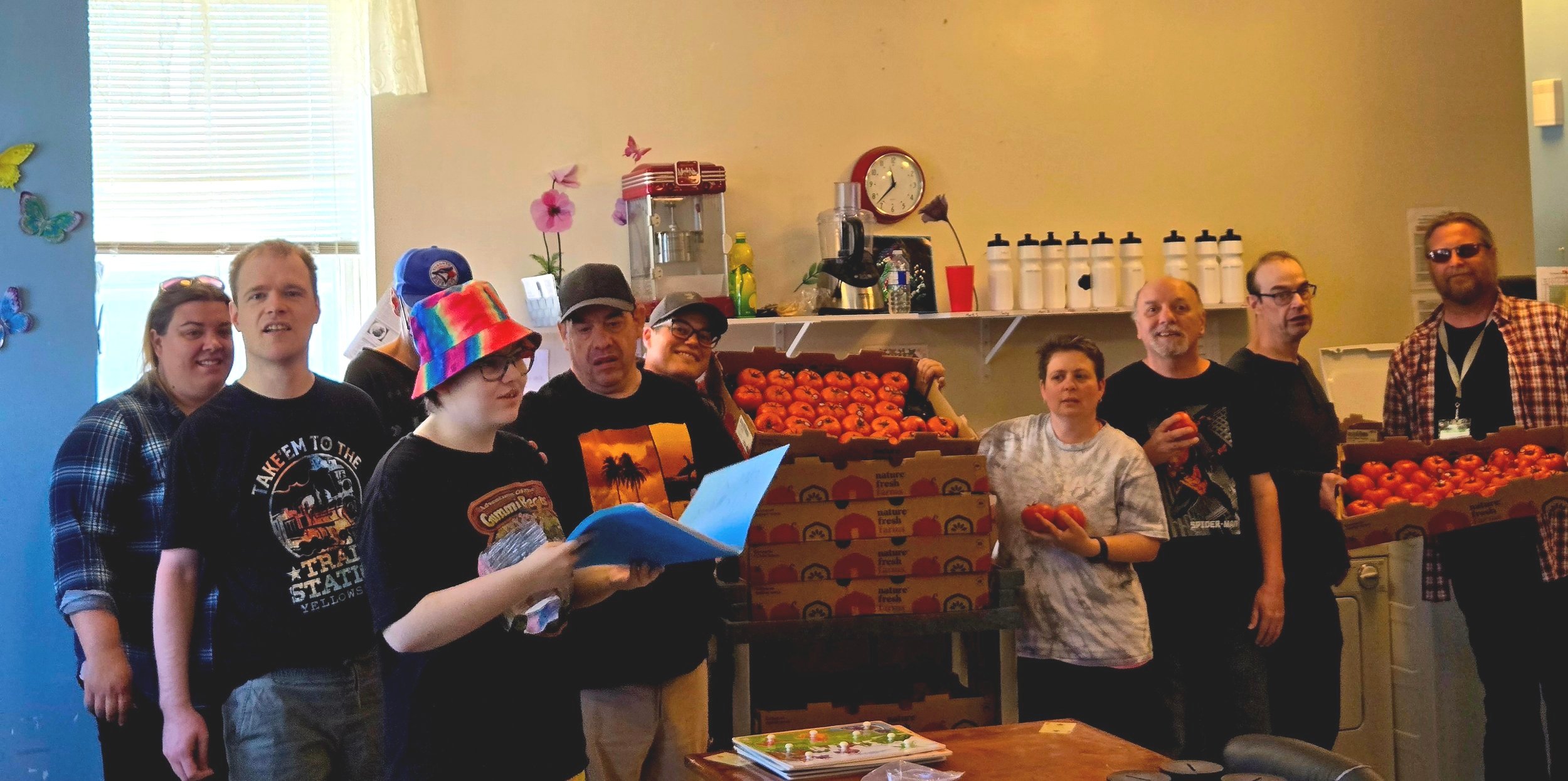
Accountability
Principles of Service Delivery
Focus on outcomes which will enhance quality of life.
Personal Goals
Choose and achieve personal goals.
Choice
Choose where and with whom to live, work, and play.
Social Inclusion
Participate in the community.
Relationships
Stay connected to family and friends.
Rights
Have the same rights as any other citizen.
Dignity
Have privacy and control over personal information.
Respect
Embracing and accepting everyone as they are.
Health
Access the best possible health services and support.
Documents
Veuillez envoyer un courriel à generalemail@clgs.ca pour toute demande de documents en français.
Nous vous remercions de votre attention et vous prions d'agréer nos salutations distinguées.
Participant Statement of Rights
The following are participants rights which encourage and promote the dignity and respect of people with developmental disabilities.
A participant has the right to be free from physical, psychological, and financial abuse. Any abuse by a staff or board member, volunteer, or student shall not be tolerated. Any failure to adhere to this policy will result in immediate discipline up to and including dismissal of the offending party or parties. Where a participant’s behaviour threatens another person or himself/herself, physical restraint by a staff person should be used only to restrain the individual without inflicting injury upon that person.
A participant has the right to be free from harassment and bullying.
A participant has the right to be free from discrimination based on race, ethnicity, sex, language, religion, national or social origin.
A participant has the right to engage in relationships with friends and family. Participants also have the right to express their sexual orientation and engage in intimate relationships (provided that mutual consent is present).
A participant has the right to privacy.
A participant has the right to confidentiality.
A participant has the right to demand access to and observation of all information compiled on his/her personal background, medical and psychological history, and current status within the accommodation setting.
A participant has the right to equal opportunity.
A participant has the right to equality between men and women.
A participant should be addressed with respect at all times and proper names of the person should be used. It is uncommon for a 45-year-old gentleman to be called Bobby. It would be more respectful of that person if he were referred to as Bob or Robert.
A participant has the right to refuse foods of their choice and should be involved in menu planning.
A participant has the right to appropriate housing and the right to have their own bed.
A participant has the right to full and effective participation and inclusion in society.
A participant has the right to have access to a computer and telephone in order to communicate with family or friends.
A participant has the right to engage in leisure and recreational activities both in their place of residence and within the community.
A participant has the right to lead and participate in the development and revision of their personal life plans.
A participant should have an opportunity to voice a grievance with a staff member and the supervisor of the program. A participant is entitled to voice a grievance in meetings with the staff and should be allowed to have representation by an advocate.
A participant should have access to information such as sexual counseling, personal hygiene, and daily living routines. This information may or may not necessarily be provided by vocational staff, but the staff should be willing to help the individual to obtain the relevant information.
A participant has the right to demand and receive prompt medical/dental care and treatment.
A participant has the right and should be encouraged to vote. They also have the right to express their political views and opinions.
A participant has the right to send and receive mail without censorship.
A participant has the right to refuse any treatment inappropriate to their well-being including behaviour management procedures, medications, or counseling services.
A participant has the right to wear clothing and maintain and dispose of possessions of their choice.
A participant has the right to have access to their own finances and the right to plan and determine how their funds are to be spent.
A participant has the right to seek and receive legal services.
A participant has the right to be informed of and receive community educational services appropriate to his/her needs.
